What Gauge Wire for Trailer Lights (Types & Best Gauges)
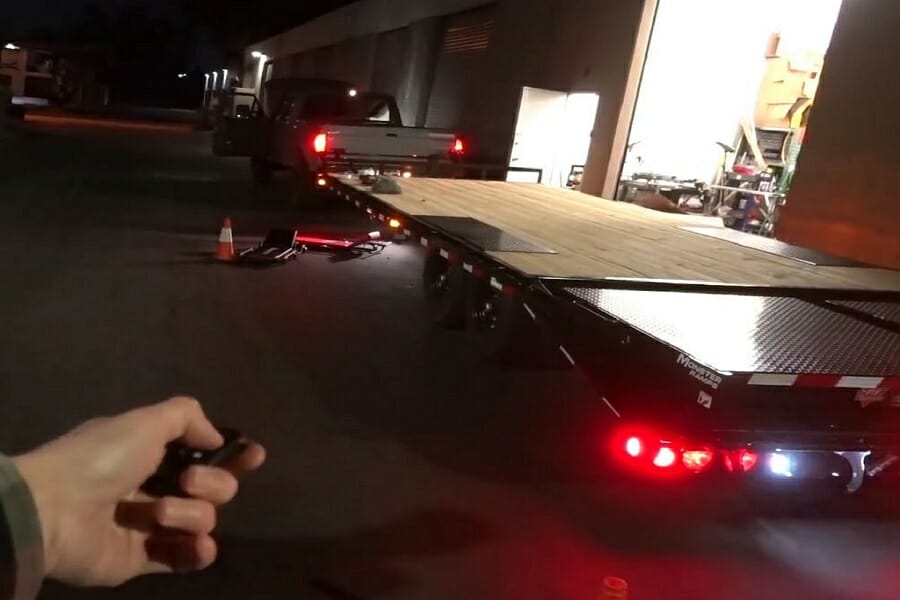
By the end of this article, you will know which gauge wire to use for trailer lights.
If your trailer lights don’t get the right amount of current, your lights may be dim or unusable and it can be dangerous to use the trailer at night. Hence, choosing the correct wire gauge is much more important than one might think.
In general, for most trailers out there you can use the 16 gauge wire, part #16-1-1. However, you might have to use 12 gauge # 12-1-1 or 14 gauge SW07550 wires according to the size of the trailer.
What Wire to Use for Most Common Trailers
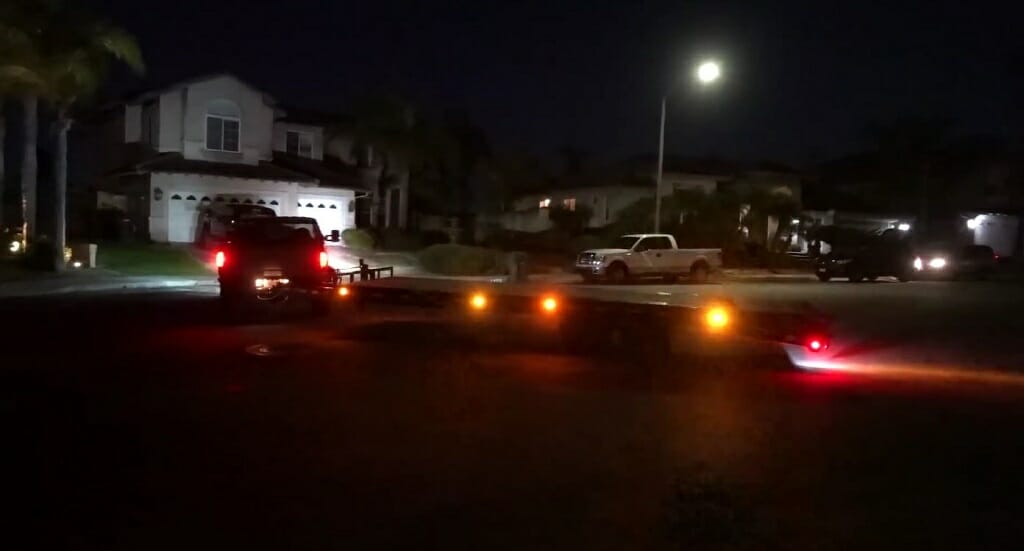
Before finding out the wire gauge for the trailer light, you should understand the AWG wires.
AWG, aka American Gauge Wire, is the standard measuring scale for wires in North America. We use the same standard to measure the cable sizes for trailer lights.
With that in mind, the 16-1-1 gauge wire is the commonly used wire for the basic trailer lights. You can use the following wire colors according to your needs.
- Black for tail lights
- Yellow for a left turn or brake lights
- Green for a right turn or brake lights
- White for reverse lights
This is an example of four wire trailer cable. There are two types of connectors; 4 wire trailer cable and 7-wire trailer cable. We’ll talk about them later in the article.
But when it comes to a larger trailer, you might have to choose a heavy-duty trailer cable. In other words, you’ll need a thicker wire.
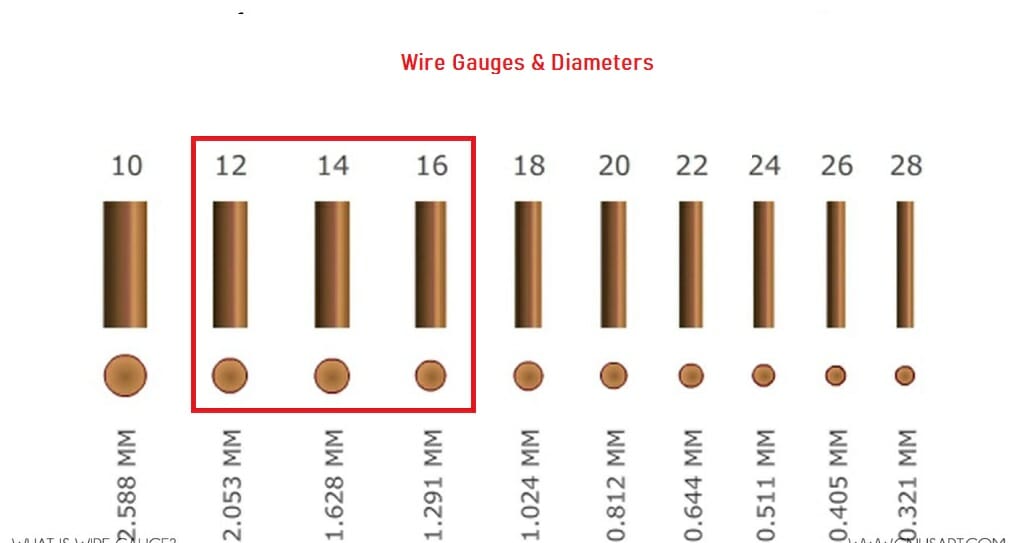
Tip: 14 gauge wire is thicker than 16 gauge wire. 12 gauge wire is thicker than the 14 gauge wire.
For instance, if you own 10 feet by 35 feet trailer, use 14 or 12-gauge wires. Both 12 and 14-gauge wires have much higher amp ratings. So, they will fit perfectly into a larger trailer with high-demanding LED lights.
Why Does Gauge Size Vary According to the Size of the Trailer?
As you can understand from the above section, you’ll need thicker wires such as 12 or 14 gauge for a large trailer. But why?
The answer is simple. A larger trailer uses longer wires. Because of that, the current should travel more distance. When the distance increases, the resistance of that wire, increases automatically. Hence, the voltage drop will be higher, and the light won’t get the right amount of current to illuminate properly. (1)
Be mindful: Thicker wires have less resistance. So, the voltage drop will be acceptable. (2)
Also, larger trailers required higher amps values. To run higher amps, you’ll need a thicker wire. Follow the below two situations for better understanding.
Situation 1
Load = 20 amp
Length = 1.8m
For this circuit, you’ll need a 14 gauge wire.
Situation 2
Load = 10 amp
Length = 1.8m
For this circuit, you’ll need a 16 gauge wire.
What Size Wire to Use for 4-Way Trailer Connector?
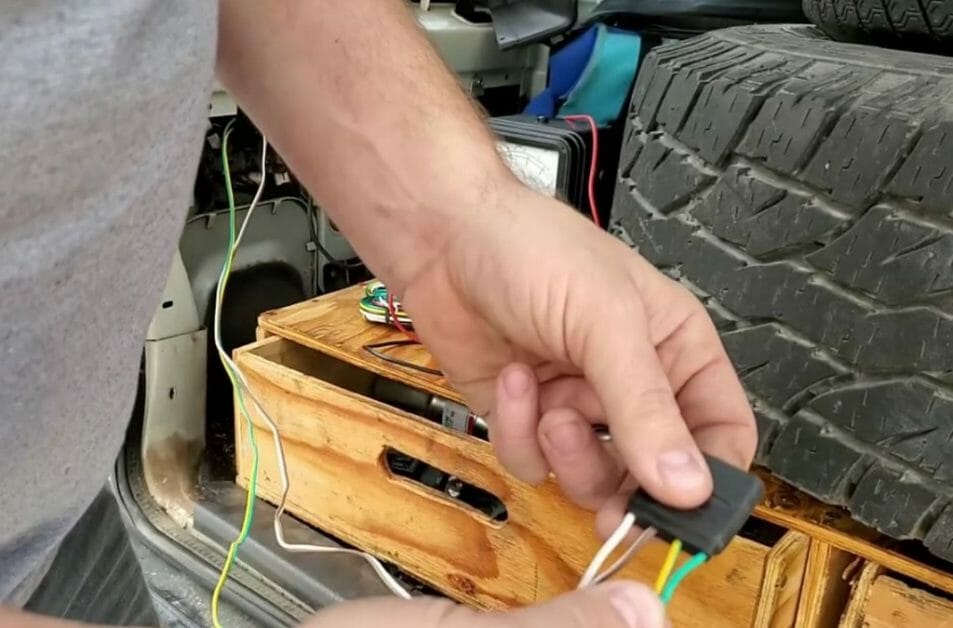
18 and 16-gauge wires are suitable options for a 4-way trailer connector. But the 16 gauge wire is the best option here. A 4-way wire connector comes with four different colored wires; black, white, yellow, and green.
What Size Wire to Use for a 7-Way Trailer Connector?
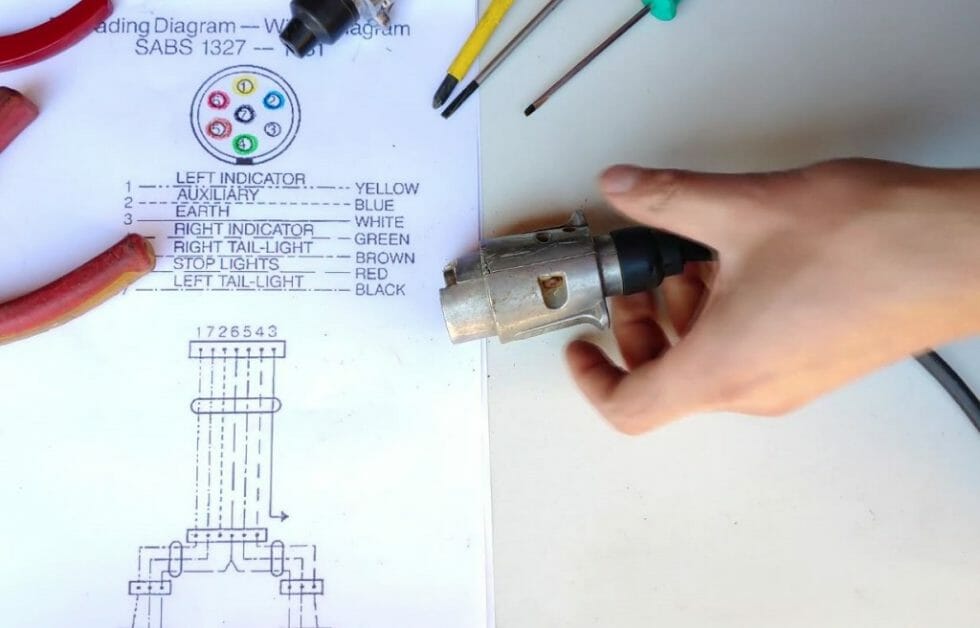
When considering the load, 12 gauge wire is the go-to option for a 7-way trailer connector. Here is the simple wire guide for the 7-way trailer connector.
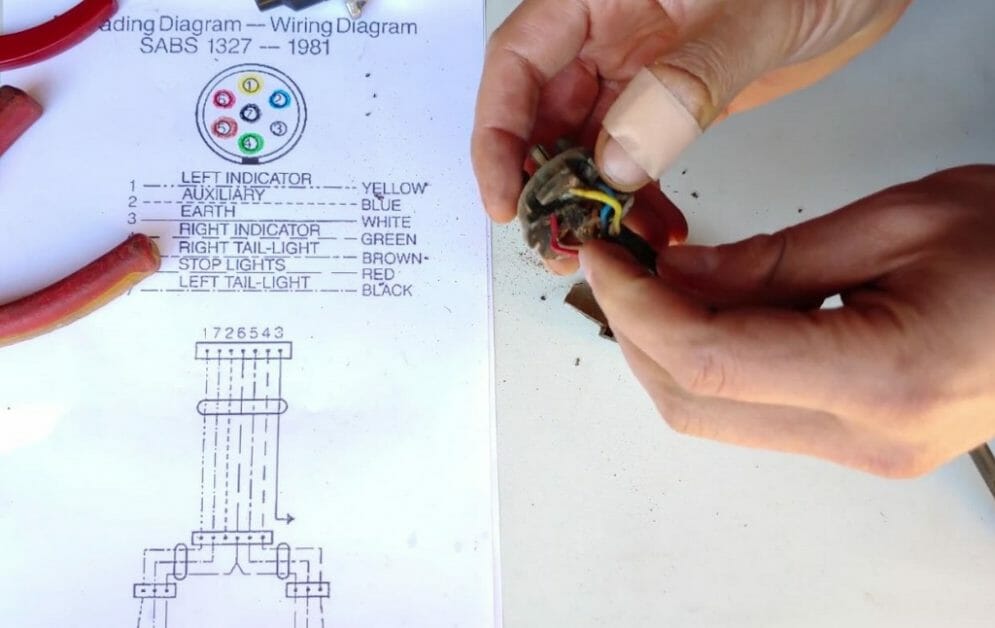
- Yellow – Left signal light
- Blue – Auxiliary lights
- White – Earth wire
- Green – Right signal light
- Brown – Right tail light
- Red – Break lights
- Black – Left tail light
Be mindful of: If you own a much larger trailer, the 7-way connector is the best option. For smaller trailers, choose a 4-way connector. Either way, don’t forget to use the correct gauge wire with these two connectors.
Wrapping Up
Depending on the size of your trailer, you might have to pick between 16, 14, and 12 gauge wires for your trailer lights. Without the proper gauge, your trailer lights won’t work properly. So, always make the right choice for trailer wiring.
Take a look at some of our related articles below.
References
(1) travel – https://www.nbcnews.com/better/wellness/5-scientifically-proven-health-benefits-traveling-abroad-n759631
(2) resistance – http://hyperphysics.phy-astr.gsu.edu/hbase/electric/resis.html
Video References
DMAXRYNO
Columbus North Art Department
redneckryan
ecologicaltime
